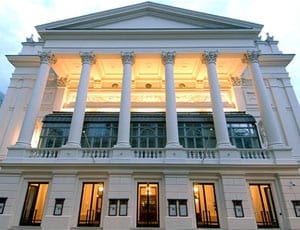Royal Opera House issues appeal to pay for ballet footwear despite paying CEO over £250,000 per year
Christmas is a time for giving and many will donate to worthy causes during the period too. The Royal Opera House, however, is one charity that one should think very carefully about donating to given the way in which it allocates the resources it receives.
Home to the extremely talented opera company, The Royal Opera, as well as The Royal Ballet, The Orchestra of the Royal Opera House and The Royal Opera Chorus, no right-minded person would begrudge the Royal Opera House funding. It performs a marvellous service in showcasing talent and adds greatly to London’s cultural mix. What we do object to is the way in which its income is allocated.
Most in Britain will not know that the CEO of the Royal Opera House, Alex Beard CBE, is one of the highest paid charity bosses in Britain. He was appointed on a salary of £250,000 in 2013. Despite this, when one of our contributors, Michael Ezra, went to see Don Quioxte in Covent Garden recently he spotted a sign that read:
“POINTE SHOES APPEAL: Footwear is essential to ballet, enabling dancers to give their best performances. Each Season our Royal Ballet dancers use about 6,000 pairs of pointe shoes and 6,000 pairs of flats. Combined with the character shoes, elastic ribbons and detailing relevant to each production, the total cost for footwear is over £250,000 a year”.
That the Royal Opera House begs for donations to pay for shoes is extraordinary at a time when they continue to pay their own head £108,000 per year more than the Prime Minister’s £142,000 annual salary. Aside from this, for example, others such as the Royal Opera’s music director, Antonio Pappano, received £556,000 in emoluments for his part-time role conducting and contributing to planning and promotion.
The Royal Opera House operates as a charitable organisation and frankly – though they operate well within the bounds set by the toothless Charity Commission – one has to ask: “Does this organisation offer its donors value for money and is it one that allocates the resources it receives appropriately?” Here, yet again, is evidence as to why the giving sector must be wholeheartedly reformed.
Subscribe to our free once daily email newsletter here:
